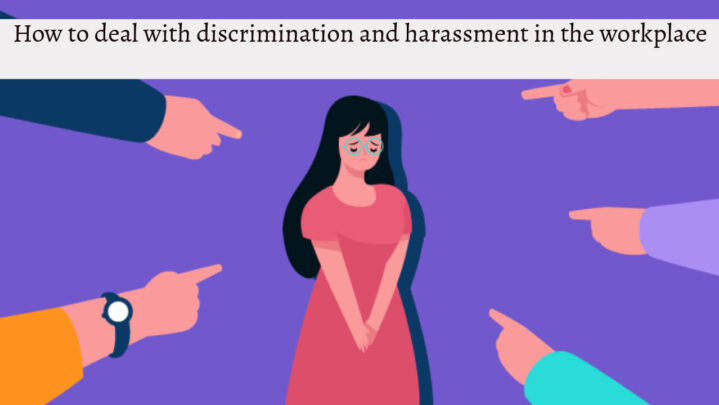Prior to anything else, it’s critical to comprehend what constitutes harassment and discrimination. Someone may be treated unfairly due to their race, gender, age, religion, or sexual orientation. Abuse of any kind, unwelcome advances, and intimidation are all examples of harassment. It’s critical to record any instances of harassment or discrimination you experience at work and to report them to the appropriate authorities if you believe you have been a victim of either a manager or an official from human resources.
Second, ask a dependable friend, family member, or coworker for assistance. When going through a challenging moment, it’s vital to have someone to share your experiences with and lean on for support.
Finally, think about asking a lawyer with experience in employment law for legal counsel. They may be able to advise you about your legal rights and options.
Fourth, take advantage of any diversity, equity, and inclusion training or workshops that your place of employment offers. They may support the development of a respectful and empathetic workplace culture.
Be sure to look after yourself lastly. Your physical and mental health may be negatively impacted by harassment and discrimination. Exercise, meditation, and quality family time should all be given top priority while practicing self-care.
In conclusion, workplace harassment and discrimination can have a negative impact on a person’s well-being. It’s critical to comprehend what constitutes harassment and discrimination, to look for support, to think about taking legal action, to go to training, and to put self-care first. Individuals can stand up for themselves and seek to make the workplace more egalitarian and courteous by taking these actions.





